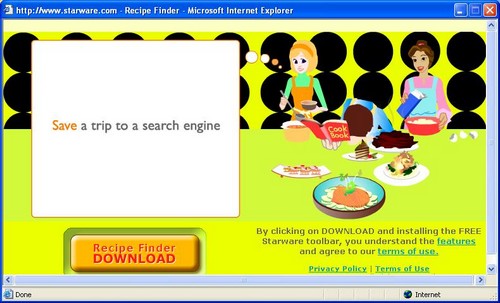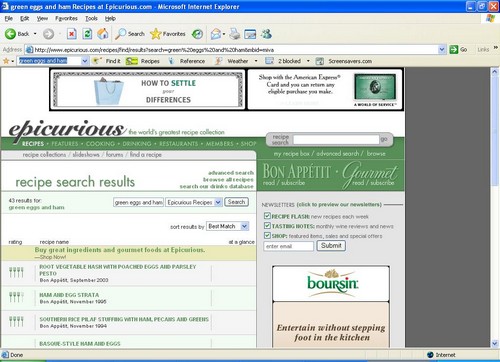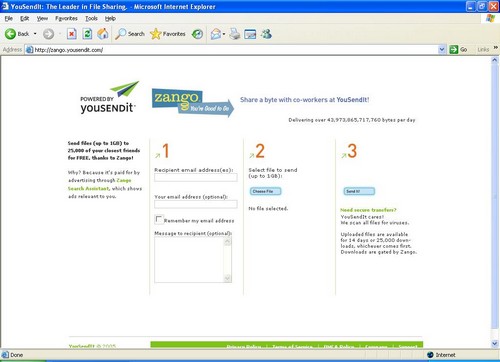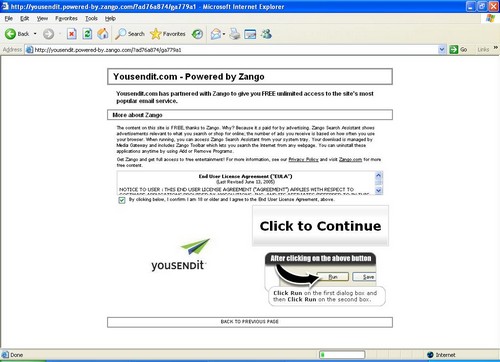I’m sobbing in my grape juice. Really. Winston Churchill is now inadvertently helping 180 Solutions.
180Solutions Keith in the Seattle Bizjournal:
“We had a problem,” he said, referring to the botnets and worms that appeared within the firm’s Zango software. “We screwed up and have worked hard to fix it.” 180Solutions is now working to communicate the results of the firm’s “naivete” through an aggressive public relations campaign based on the exhortations by none other than Winston Churchill.
So here’s where Churchill comes in:
In fact, 180Solutions now follows a public relations mantra inspired by Churchill’s sayings:
1. Accept zealots for what they are: “A fanatic is one who can’t change his mind and won’t change the subject.”
2. Prevent defense is a losing strategy: “An appeaser is one who feeds a crocodile and hopes it will eat him last.”
3. Speak to the right audience: “Never hold discussions with the monkey when the organ grinder is in the room.”
4. Zealots will eventually lose steam: “Nothing in life is so exhilarating as to be shot at without result.”
5. Be proactive/ play offense: “History will be kind to me for I intend to write it.”
My grape juice is becoming pink.
But there’s more in this article. It’s about 180’s exchange with consumers.
So what is this new “content economy?” The premise is simple when compared with something we’re all familiar with — the tradeoff of free TV for commercial advertising. For example, the cost of a new episode of “Desperate Housewives” each week is the inconvenience of the commercial breaks. If we don’t like commercials, we can opt for premium pay channels
In the new content economy, Smith says, in exchange for highly desired Internet content, such as an online game, we can agree to advertising. On the Internet this translates into what 180Solutions calls “time shifted” pop-up ads that display when you’re searching for information. As with TV, Internet consumers have options too. If you don’t want to trade free content for pop-up advertising, you can pay for content.
Article link here.
Ok, let’s chat about this whole “content exchange/content economy/long tail” stuff. There’s free stuff at Zango.com (a 180 site), like ZangoWeather or some Flash game. In exchange for these freebies, you get Zango Search Assistant and get a, umm, rich advertising experience. You know, I can almost jive with that. I can understand it.
But let’s not forget that a crapload of 180 installs occur on sites that push an install on you that you don’t actually need.
For example, you go to a site and see this in Internet Explorer:
![Ie23423[1]](http://sunbeltblog.eckelberry.com/wp-content/ihs/alex/ie23423%5B1%5D_thumb.jpg)
It’s a screen, generated by ZangoCash (a part of 180), that pushes the 180’s Zango Search on you.
That same link in Firefox doesn’t say anything. As in NOTHING.
![Ff23421[1]](http://sunbeltblog.eckelberry.com/wp-content/ihs/alex/ff23421%5B1%5D_thumb.jpg)
So actually, the Internet Explorer user is pushed (and still doesn’t have to do it) into this “content economy” but the Firefox user isn’t.
Or like this really nasty porn site, where you get the same type of push to install 180Search Assistant. (The images are off, thankfully. This is really hardcore stuff.):

Lord Winston Churchill, one of the greatest statesmen and leaders who has ever graced this earth. He, who stared down Hitler with a coolness that would make Dirty Harry run for the hills. He, who led Britain through its darkest hour, with the greatest of purpose and strength, imortalized through these words:
We shall go on to the end, we shall fight in France, we shall fight on the seas and oceans, we shall fight with growing confidence and growing strength in the air, we shall defend our Island, whatever the cost may be, we shall fight on the beaches, we shall fight on the landing grounds, we shall fight in the fields and in the streets, we shall fight in the hills; we shall never surrender, and even if, which I do not for a moment believe, this Island or a large part of it were subjugated and starving, then our Empire beyond the seas, armed and guarded by the British Fleet, would carry on the struggle, until, in God’s good time, the New World, with all its power and might, steps forth to the rescue and the liberation of the old.
Well, even he can’t escape 180 Solutions.
Alex Eckelberry
(Thanks Ben)
















![Ie23423[1]](http://sunbeltblog.eckelberry.com/wp-content/ihs/alex/ie23423%5B1%5D_thumb.jpg)
![Ff23421[1]](http://sunbeltblog.eckelberry.com/wp-content/ihs/alex/ff23421%5B1%5D_thumb.jpg)

